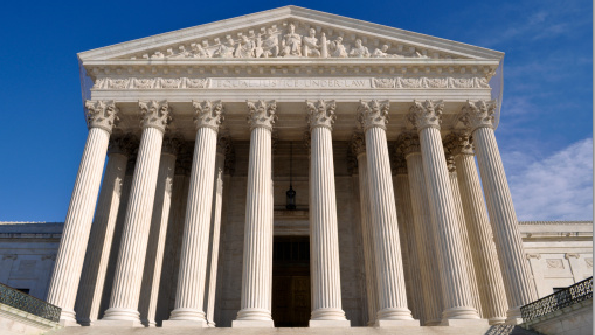McAdams On: Good Copps, Bad Copps, June 20, 2011
CONTRARIANVILLE: Here’s the deal, Dr. Copps. Public-interest journalism is diametrically opposed to profitability, and the buck doesn’t stop with “mega-media interests.” It stops with every American expecting something for nothing, and quarterly 10 percent growth on their portfolio. I think that covers about all of us.
I appreciate and admire your devotion to the concept of public-interest journalism. I agree with you that “our country’s media is an issue that goes to the heart of our democracy.” I’m no less discouraged than you are about the decline in good old-fashioned shoe-leather reporting. I once bemoaned as much in a bullpen of young Web-content aggregators who looked at me as if I were a cartoon Deborahsaurus.
They grew up in the 1980s and ’90s, during the proliferation of cable channels. Hardcore reporters were replaced by talking heads hired to turn the public against journalists who exposed political and corporate corruption. That’s not some kind of “conspiracy” theory. A president was taken down by shoe-leather. As if successors were going to sit around and let that happen again.
Investigative journalism costs money, takes time, and ticks people off. Imagine presenting that to your investors as a business model and to your advertisers as a value proposition: “Well, we’re going to hire very smart people, pay them well to dig around in powerful people’s affairs, and hopefully come up with an embarrassing story.”
Because if the story’s not embarrassing or at least violent, it’s not a story. Bleeding leads because we’re all rubber-neckers. Scandal rules because we feel superior to powerful people taken down a peg or two.
On that note, I would like to personally thank you and every other veteran regulator and politician for not posting pictures of yourself in your undies on the Internet. I personally believe there’s more well-meaning, upstanding, hard-working folks in the Beltway than are ever given credit, mainly because the handful of narcissistic, sex-crazed whack jobs there, are--let’s face it--so much more interesting.
Perhaps your own approach to assessing the state of public-interest media is similarly skewed. You know, the old glass-half-empty thing.
“There is a crisis when . . . more than one-third of our commercial broadcasters offer little to no news whatsoever to their communities of license,” you say in your response to this week’s report on the state of local media. You use the report to reinforce the position you’ve held for years--that broadcasters must be held to specific public-interest standards to qualify for license renewal.
I’m with you in some respects. Certainly, as a citizen, I would like to have full disclosure that “People In Favor of Human Life” are setting my drinking water on fire, for example. And certainly the Googleratis there at the commission can whip up a content management system whereby all stations can submit and update public-inspection files. You ask what good it would do if the commission doesn’t use it as a hammer for license renewal.
“Why would consumers bother to plumb the Internet looking at public files if there is so little confidence their effort will be rewarded with remedial action?”
One word, Brother Copps. “Trolls.” And to be fair, others of us not so obsessed that we’ll go get thrown off the KCET-TV lot for asking to inspect the file. What’d that cost ‘em, 10 grand? I’d call that enforcement.
I part company with you on withholding license renewals. If you thumb through other recent fines for incomplete public-inspection files, you’ll find some pretty small stations. The very type of stations that in one breath you endorse in the name of diversity, and deride because they are not doing local news, most likely because they can’t afford it. How long do you suppose they’ll stay in business after you yank their license for not covering city hall? Not long, I suspect.
And please, just once, when you’re haranguing the broadcast industry for not being civic-minded enough, consider what Mike Devlin of WFAA-TV in Dallas said in the report:
“Does the FCC know that WWL-TV stayed on for 16 straight days without a commercial during Hurricane Katrina?” This is all the while station personnel were moving operations from one location to another to outrun the flooding.
Consider also that fewer reporters across all TV stations are doing more news. And that despite a two-year period of the most harsh economic conditions in the history of the TV business, stations are still performing investigative journalism. The report you criticized as having “glossed over” public-interest policy cites a report by KHOU-TV in Houston that led to a tire recall and possibly saved lives. Others included exposés on airport safety, government waste, mortgage fraud and prison practices that led to reforms. Two reporters at a Boise, Idaho station exposed financial corruption that promoted the resignation of the mayor and his chief of staff.
And it’s not just about dredging, Mr. Commissioner. Broadcasters have raised billions of dollars for disaster relief and charities. TV stations across the country run all sorts of public-service campaigns, from discouraging underage drinking, fighting drug abuse, to providing Christmas gifts for children, raising awareness about child abuse, and helping elderly people keep the heat on the wintertime. Broadcasters voluntarily contribute time and money to their communities of license.
Please quantify and consider that in your press for codification of public-interest obligations. Do not cut off the nose to spite the face.
Sincerely,
Deborah
The professional video industry's #1 source for news, trends and product and tech information. Sign up below.
